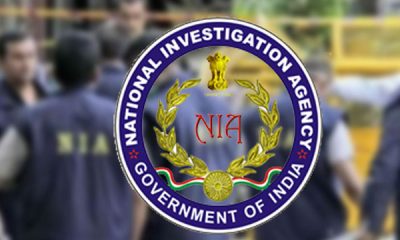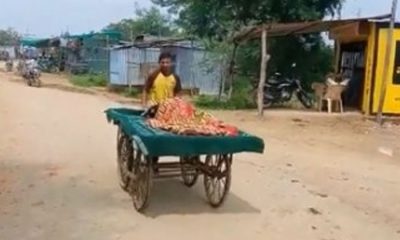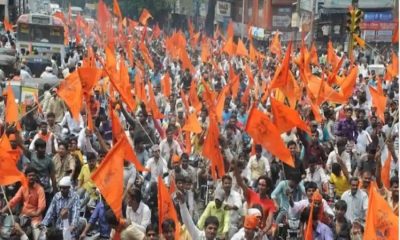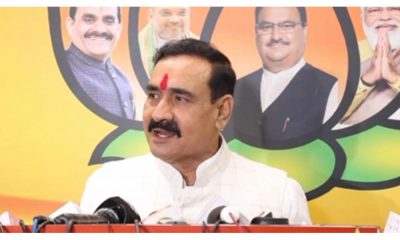Crime
Migration Mess: No jobs in hand amid food crisis, Madhya Pradesh’s Khandwa witnesses tribal exodus
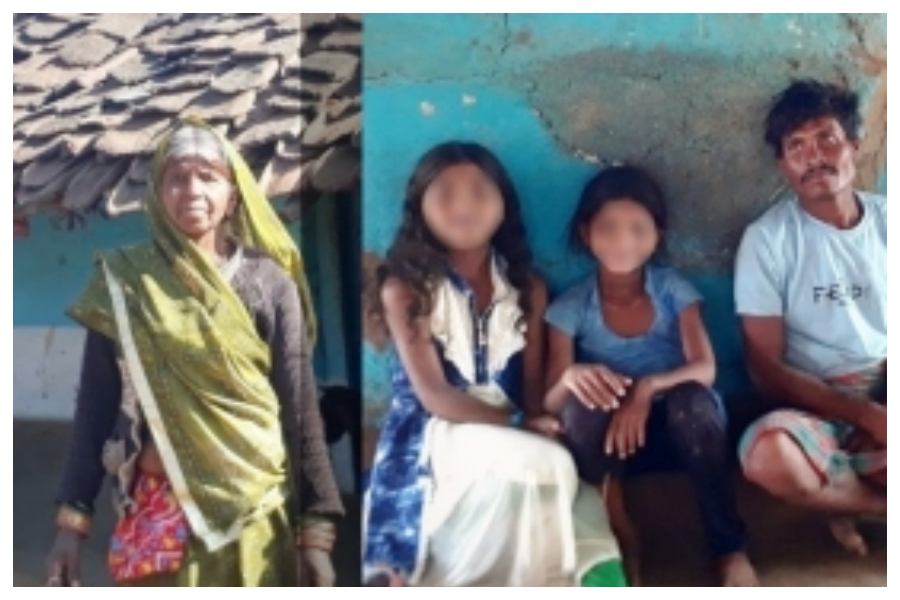
Adivasis from the region move to other states for employment, only to find themselves worked to the bone, living in grim conditions and often cheated of their wages or held hostage by employers.
“I have a wife and five daughters, but there’s no work in the village. Even if you find some, the panchayat takes months to pay us,” said 35-year-old Poonamchand Sitaram Gautam, a resident of Khandwa district in Madhya Pradesh, who recently returned from Koratala in Telangana, where he was employed as a construction worker.
“Under the Public Distribution System, we receive just 5 kg of foodgrains for each member of the family every month. But these rations barely last a fortnight,” he added, alluding to the food crisis in his tribal-dominated village of Dabhia in the state’s Khalwa region.
Based on a field study conducted in 12 states by Ekta Parishad, Madhya Pradesh is purported to have the highest inter-state migration rate — standing at 32.39 per cent, Khandwa being one of the districts leading. According to estimates by a local body, between 5,000 and 10,000 tribals migrate out of Khalwa every year to work as labourers in other states.
Khalwa is spread over 70 to 100 km from the district headquarters. While many villages of this block are part of the Khandwa-Betul State Highway, most of Khalwa falls under the jurisdiction of the forest department, with 90 per cent of the population living in remote areas. In fact, when 101Reporters visited Dabhia, we found that at least two members from each house had migrated to other states for work.
Last year, Gautam’s 16-year-old daughter Garima found work as a labourer to build drains under the Mahatma Gandhi National Rural Employment Guarantee Act (MGNREGA). After working eight hours a day for five weeks, Garima was paid only two weeks’ worth of wages. When her mother Rajni Bai questioned the panchayat, she was told that the money had been transferred to her account, but they have yet to receive it.
Jamna Kallu Chauhan, too, shared her woes. “In the last two weeks, I carried out digging work for the panchayat eight hours a day. But I was paid only for one week. I approached the panchayat office in Semliya repeatedly, but no one cooperated with me,” the 60-year-old said.
The sarpanch of Semliya panchayat Pyari Bai Ramesh Takher, however, denied any outstanding payments.
“No labourer’s wages are outstanding with the panchayat,” she claimed. “The money has been transferred into their accounts. The villagers often withdraw money and blame us later.”
No logic to the numbers
Kishore Kumar Uike, the CEO of Janpad panchayat, insisted that the district is continually opening up job opportunities for the area’s local residents.
“Janpad panchayat has created employment for 17,000 labourers in the development block,” he said. “I don’t understand why people are migrating for work. Even today, if anyone approaches us for work through the panchayat or district, we will provide them with work.”
According to the MGNREGA website, which currently seems inaccessible, 3,821 days of wages were generated in Khalwa from May 2020 to May 2021, benefiting 644 workers. The work given to labourers included pond construction, canal deepening and dam checks. The website has had no updates since then.
A hunger-induced distress migration
According to Prakash Michael, treasurer of the Spandan Samajseva Samiti, an organisation working to provide nutrition and employment to these tribals, the primary cause for migration is the food crisis in the region, which has increased in the last couple of decades.
“Adivasis have ditched growing traditional crops and turned to cash crops such as soybean. Bajra and other millets such as koda and kutki, once the backbone of their nutrition, are no longer visible in the fields. They use most of the money they earn by selling produce to repay loans. They are left with very little foodgrains, so this is basically hunger-induced distress migration,” Michael told 101Reporters.
This explanation holds true for 60-year-old Jamna, who now lives alone in her hut. Her husband, Kallu Chauhan, had “taken up a contractual job of harvesting moong in Nahali, Harda district, despite being terribly ill. The family’s financial crisis had pushed him to move, and within three days, we lost him to the illness.”
One lakh labourers migrate from Nimar
While the administration has no official figures to share, Spandan Samajseva Samiti, which collects data for land surveys, estimates that around 1 lakh people from Khandwa, Khargone, Barwani and Burhanpur of Nimar district migrate to Maharashtra, Telangana, Karnataka, Goa and Andhra Pradesh each year.
However, this large workforce is unorganised and unprotected. These labourers are neither insured by their employers, nor are they provided safety equipment for use while working. This often leads to their death, and since there are no official records of migrant labourers, employers shirk their responsibilities by deeming them mere accidents.
Under the Inter-State Migrant Workmen Act, the employer must provide migrant workers with food, lodging, healthcare and social activities. Labour officials must be kept in the loop to ensure that workers’ rights are not violated. Also, the figures of migrant workers must be displayed on the Migrant Labourer Portal, though no data appears to track this information.
District Labour Officer S.S. Alawa explained that the act “can be invoked only if the contractors or residents officially inform the department about their migration, which the tribals here fail to do. Hence, they cannot exercise any rights under this law”.
Wily contractors, callous employers
Furthermore, contractors here deploy locals to connect them with labourers. These people take advantage of their knowledge of the Korku dialect and lure the tribals by promising large sums of money as wages. They are often paid an advance so they believe it’s a good deal and manage to convince their friends and neighbours, too.
On the appointed day, the contractor’s vehicle arrives at the village to transport the migrants. The journey usually takes place at night, so the workers don’t recognise where they are being taken. They often don’t find out for days and weeks which village, district or state they are working in. The contractor shares his mobile number to placate the families, but the phone is often turned off once they set out with the migrant labourers.
Daji Lofa, a 30-year-old who returned from harvesting sugarcane in Maharashtra, recalls a contractor who had come to the village before Diwali last year and promised everyone cane-cutting work for three months. He had also promised them huge amounts of money, which would enable them to stay home without working for the rest of the year. He had paid an advance of Rs 7,000 to one of the workers. A week after Diwali, the contractor arrived at 11 pm with two mini Eichers and took 40 people with him. But they were refused pay after putting in hours of hard labour.
Such are the kinds of experiences that the tribals of Khandwa attempt to flee.
Babu Mangal, one of the workers from Khalwa held hostage in Pandharpur, Maharashtra, last year, said they were treated worse than animals. He, along with his wife, had to continue harvesting sugarcane despite being terribly ill.
“We didn’t get any treatment when we were ill. We had to arrange for our own food and sleep in the open fields or inside warehouses,” the 50-year-old told 101Reporters.
Similarly, when Sunita Kajle from Langoti village went to Maharashtra to work, she found out she was pregnant. But she was still forced to continue working long hours without relief or proper nutrition until the sixth month of her pregnancy. As a result, she gave birth to a malnourished daughter after returning.
In some cases, the tribals bear the consequences of this survival act — the migration — longer than they could have anticipated, at times for life.
Take Munni Bai, for instance. She injured herself while working at a brick kiln and continues to live with it. She had dropped bricks on her feet, which initially caused swelling and later became worse. Munni can no longer work due to her injured leg and has received no compensation from neither the contractor nor the government.
Socio-economic factors
Khandwa district has a population of 13,10,061, of which 80.20 per cent live in villages. The literacy rate of Khalwa is only 43.10 per cent (51 per cent among males and 34 per cent among females). Despite this, the proportion of labour in Khalwa is 17.38 per cent, of which 9.66 per cent is male and 7.72 per cent female. Agriculture is the primary source of income, but the people here barely own any land, 2 acres per family on an average.
The percentage of total agricultural farmers in the tehsil is 14.08 per cent in Khalwa, of which 9.88 per cent are male and 4.20 per cent are female. There’s no focus on employment-oriented education, and the entire sector is dependent on resources from agriculture and forests.
In 2009-2010, the state government had created natural resource-related jobs in Awliya under the Small Forest Produce Association, for the manufacture of incense sticks, perfumes, bamboo furniture and household items. Initially, over a 100 people were employed under this scheme, but they could not grow beyond making incense sticks, which wasn’t financially viable and hence, discontinued.
Crime
NIA nabs 2 human traffickers from Delhi, HP for role in sending over 100 youths to US via ‘donkey route’
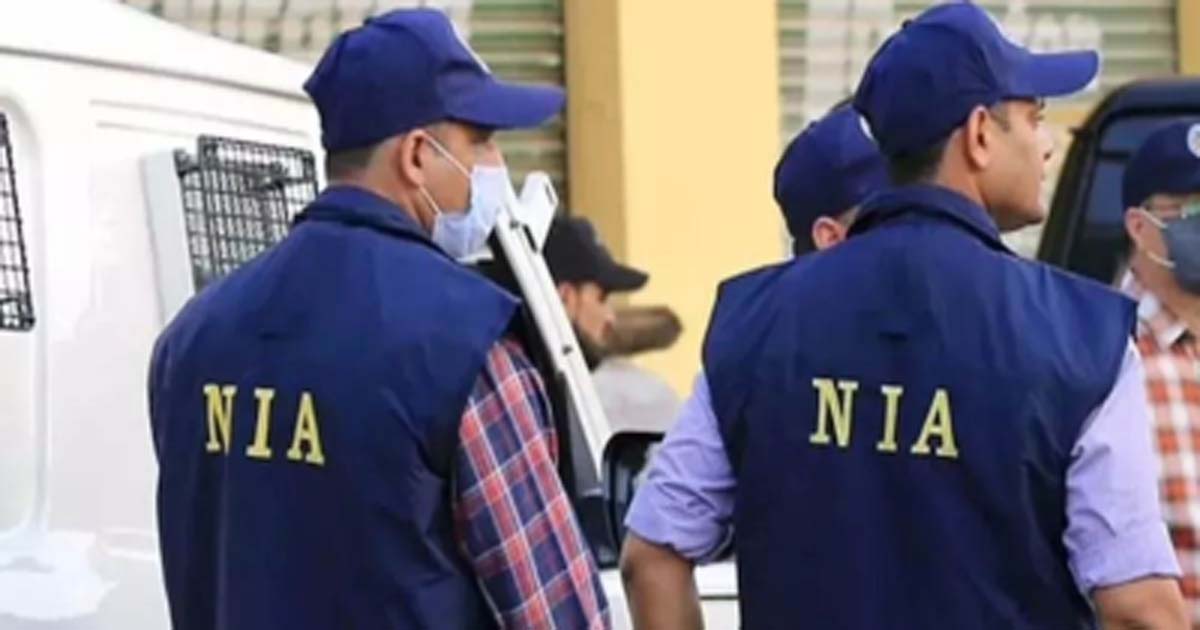
New Delhi, July 5: The National Investigation Agency (NIA) on Friday arrested two human traffickers from different locations in Himachal Pradesh and Delhi. The duo, accused of sending more than 100 youths to the United States using the notorious ‘donkey route’ were nabbed after extensive searches.
The accused were identified as Sunny Donker, a resident of Kangra (Himachal Pradesh) and Shubham Sandhal, a resident of Punjab who was currently residing in the national Capital.
Both are said to be associates of Gagandeep Singh alias Goldy, arrested earlier in March.
Gagandeep was arrested over a victim’s complaint who was illegally trafficked to the US using the infamous ‘donkey route’ and was deported back to India in February, this year.
Goldy, a resident of Tilak Nagar in Delhi, was subsequently chargesheeted by the NIA.
As per the findings of the law enforcement agency, Gagandeep Singh used to take around Rs 45 lakh from each victim on the pretext of sending them to US on a valid visa.
He would then illegally send them on an arduous journey via multiple countries, including Spain, El-Salvador, Guatemala and Mexico.
He had sent more than 100 victims illegally to the US, in this manner before being arrested.
Sunny was the main associate of Gagandeep Singh and played a key role in facilitating the journey of the victims on the ‘donkey route’.
Also, the victims were physically and mentally harassed on the way by agents to extract more money.
Shubham Sandhal operated as key hawala conduit, who transferred funds to agents in Latin America. Gagandeep used him to transfer part of the money taken from the victims to the agents based in Latin America.
The NIA, took over the case from Punjab Police in March this year. As the investigation proceeds, it continues to unravel dark secrets of the human trafficking racket.
Crime
Kolkata law college rape: Monojit Mishra made 16 calls in 3 hours, police probe details
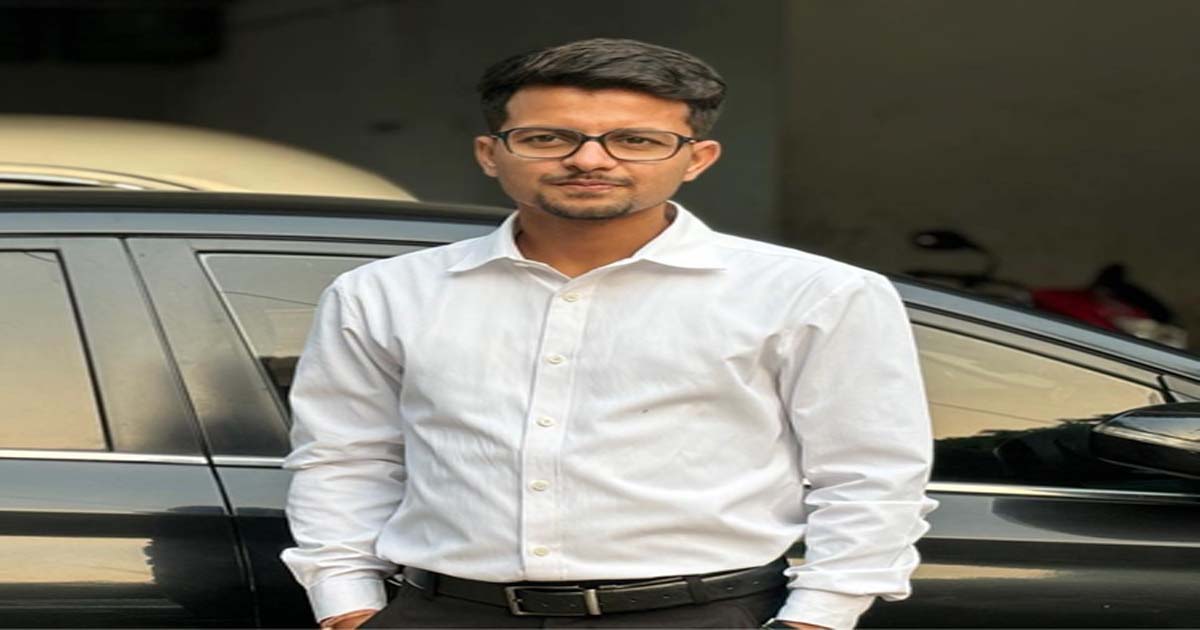
Kolkata, July 4: Monojit Mishra, one of the three accused and reportedly the main architect in the law college student gang-rape case, made as many as 16 calls in three hours after the crime incident took place on the evening of June 25.
Those call details are currently being examined by the investigating sleuths, and at the same time, the process of interrogation of those with whom Mishra conversed during that period has started.
The tower locations of the mobile phones of the three accused, namely Mishra, Jaib Ahmed and Pramit Mukhopadhyay, during that period are being tracked by the investigating officials to have an idea of the places they went to immediately after the crime.
Sources said that one of the calls that Mishra made from his mobile phone during that period was to a member of the governing body of the same college. Although the governing body member concerned has already been questioned by the investigating officials, the latter are not willing to disclose anything on the interrogation findings for the sake of the investigation.
This week, the investigation into the case was handed over to the Detective Department of the city police, which has started the probe process by adding new sections against the three prime accused persons.
Before Detective Department took over the charge of the investigation, the three accused persons were charged under sections on rape. However, with the Detective Department taking over the investigation sections relating to abduction and causing injuries with weapons were also slapped on the three.
On Friday morning, around 3 a.m., the sleuths of the detective department reached the campus of the law college in Kolkata along with the three accused for reenactment of the incident.
Sources said that the findings of the reenactment process will be cross-checked with the statement given by the victim soon after the event of sexual harassment took place last week. Earlier, a member of the special investigation team, which was initially investigating the matter, had gone to the college campus with the victim for reenactment purposes.
The woman, a student of the South Calcutta Law College, was allegedly raped by two senior students and an alumnus of the institute in the guard’s room on June 25. Apart from the three, the college guard has been arrested in the case so far.
Crime
ED raids eight locations linked to ex-Cong MLA Amba Prasad in Jharkhand
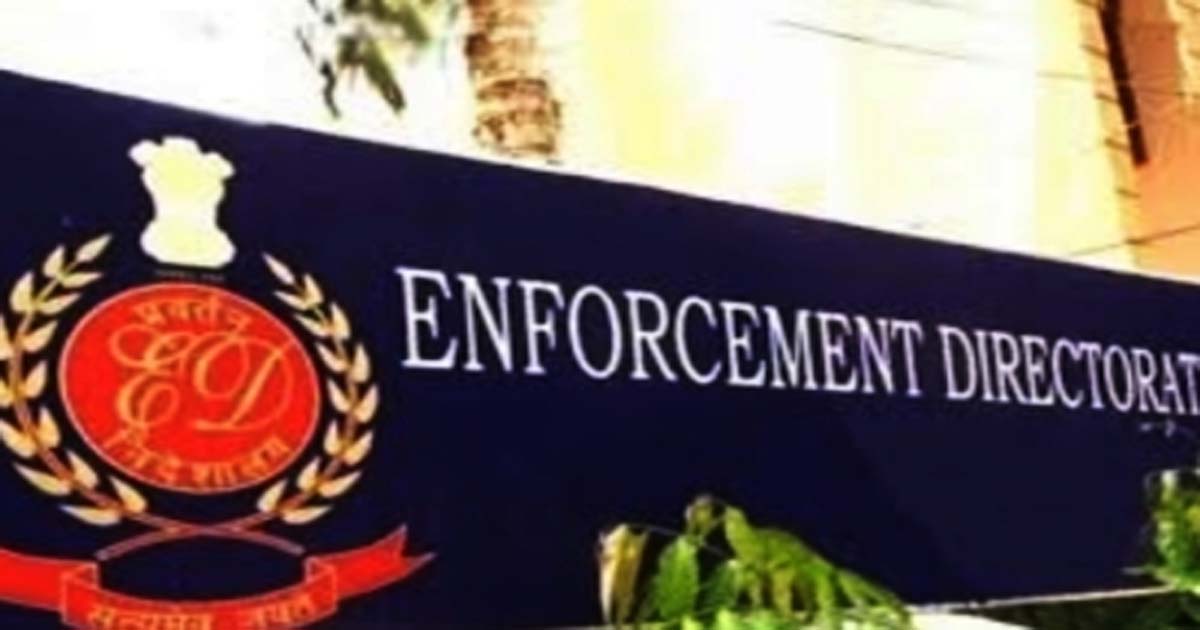
Ranchi, July 4: The Enforcement Directorate (ED) on Friday carried out raids at eight locations linked to close associates of former Congress MLA Amba Prasad from Jharkhand’s Barkagaon Assembly constituency.
The raids are part of an ongoing money laundering probe involving a prominent company engaged in coal transportation, infrastructure, and the power sector.
According to sources, simultaneous searches were conducted in Ranchi, Hazaribagh, and Barkagaon.
Among the locations searched are the residence of Amba Prasad’s aide Sanjeet in Kishoreganj (Ranchi) and the homes of her personal assistants — Sanjeev Sao, Manoj Dangi, and Pancham Kumar — in Barkagaon.
Security forces have been deployed in large numbers at all the premises where raids are being conducted.
This move comes months after the ED conducted a similar crackdown between March 12 and March 14 this year, targeting Amba Prasad, her father, and former Minister Yogendra Sao, brother Ankit Raj, and several other relatives and associates.
During those raids, the agency had seized Rs 35 lakh in cash, digital devices, fake stamps of banks and government offices, handwritten receipts, diaries, and other incriminating documents.
Officials believe that the current searches are based on evidence and leads gathered during the earlier raids. The ED is now closely examining documents related to financial transactions, land deals, and mining activities.
Ten companies reportedly registered in the names of Amba Prasad and her family members are under scrutiny.
Earlier, the ED had questioned Amba Prasad, her father Yogendra Sao, and her brother Ankit Raj at its zonal office in Ranchi in connection with the same case.
Amba Prasad was elected to the Jharkhand Assembly from Barkagaon in 2019 on a Congress ticket. Her parents — Yogendra Sao and Nirmala Devi — have also represented the same constituency in the past.
-

 Crime3 years ago
Crime3 years agoClass 10 student jumps to death in Jaipur
-

 Maharashtra9 months ago
Maharashtra9 months agoMumbai Local Train Update: Central Railway’s New Timetable Comes Into Effect; Check Full List Of Revised Timings & Stations
-

 Maharashtra9 months ago
Maharashtra9 months agoMumbai To Go Toll-Free Tonight! Maharashtra Govt Announces Complete Toll Waiver For Light Motor Vehicles At All 5 Entry Points Of City
-

 Maharashtra9 months ago
Maharashtra9 months agoFalse photo of Imtiaz Jaleel’s rally, exposing the fooling conspiracy
-

 Crime9 months ago
Crime9 months agoBaba Siddique Murder: Mumbai Police Unable To Get Lawrence Bishnoi Custody Due To Home Ministry Order, Says Report
-

 National News9 months ago
National News9 months agoMinistry of Railways rolls out Special Drive 4.0 with focus on digitisation, cleanliness, inclusiveness and grievance redressal
-

 Maharashtra8 months ago
Maharashtra8 months agoMaharashtra Elections 2024: Mumbai Metro & BEST Services Extended Till Midnight On Voting Day
-

 National News10 months ago
National News10 months agoJ&K: 4 Jawans Killed, 28 Injured After Bus Carrying BSF Personnel For Poll Duty Falls Into Gorge In Budgam; Terrifying Visuals Surface



